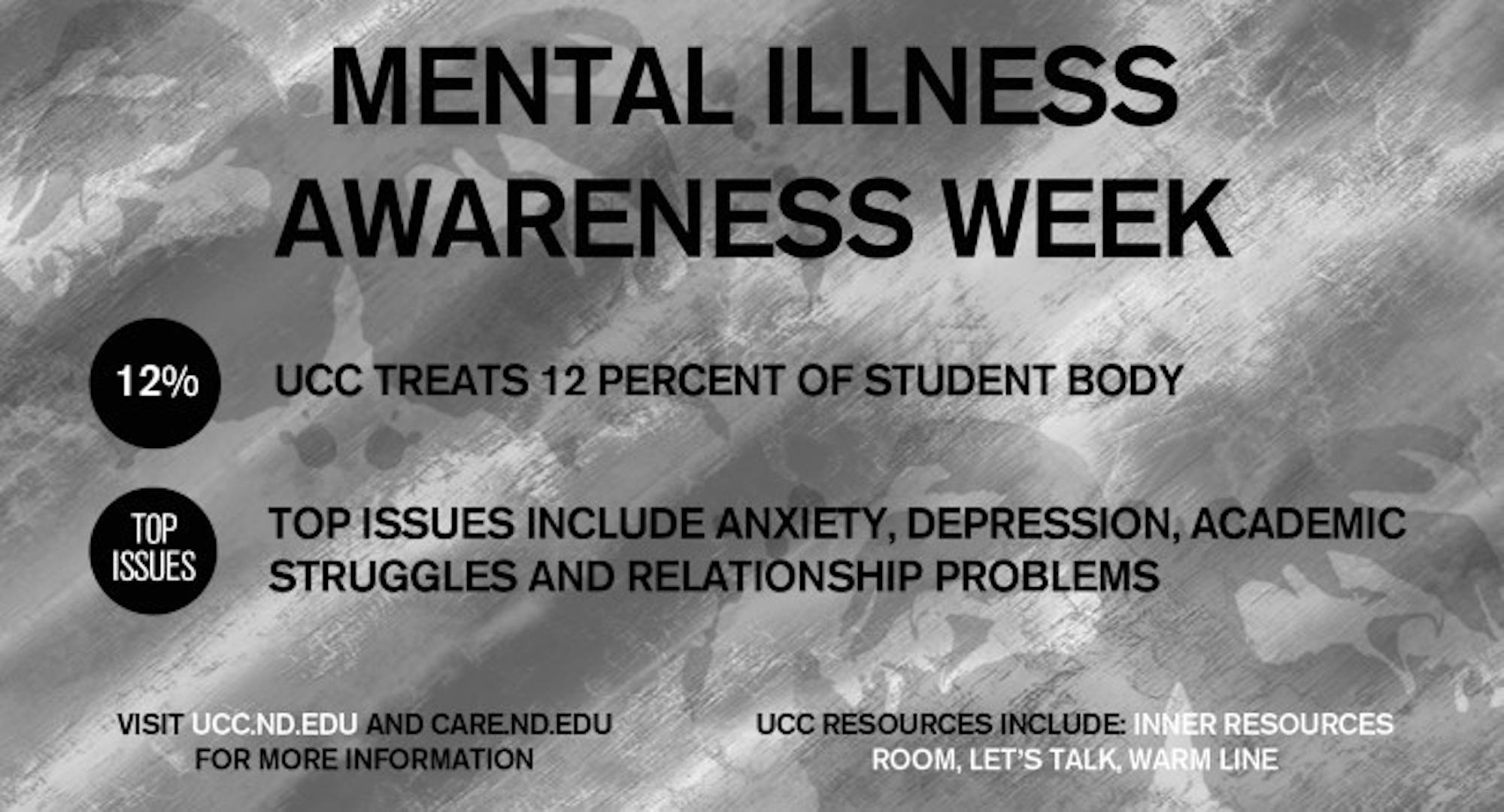
Notre Dame’s University Counseling Center (UCC) treats 12 percent of the student body — from every dorm, from every major, from any club or organization and from any situation or background. According to Susan Steibe-Pasalich, director of the University Counseling Center, the top issues that affect students include anxiety, depression, academic struggles and relationship problems.
The National Alliance of Mental Illness (NAMI) sponsored Food for Thought on Monday night in Jordan Hall of Science as part of “Illuminate the MiND,” this year’s Mental Illness Awareness Week. Junior Katie Paige, president of NAMI-ND, introduced the goals of the organization before Steibe-Pasalich and CARE [Campus Assessment Response and Education] consultant Dr. Erica Kelsey discussed the mental illness resources available on campus for students.
“Every year, the first full week of October is nationally recognized as Mental Illness Awareness Week,” Paige said. “NAMI tries to end stigma, provide support, educate Notre Dame and the South Bend community and stand in solidarity with those who are struggling with mental illness.”
Steibe-Pasalich said the UCC staff is trained specifically to help students.
“This year, our staff is licensed psychologists and clinical social workers with a special expertise in college student mental health,” she said. “We are also a training site for doctoral interns and accredited program studies.”
The UCC offers services for a variety of mental issues, including a nutritionist for students suffering from eating disorders, an Inner Resources Room with sunlight therapy lamps for students with seasonal affective disorder and Let’s Talk, an anonymous drop-in counseling service for students to talk to a counselor briefly and determine if they want to pursue treatment at the UCC.
Steibe-Pasalich also said the UCC has a Warm Line for non-emergency help. This line is often used by faculty and staff who are concerned about a student, she said, although students are encouraged to use it too.
“If you’re concerned about someone but don’t know what to say, we will help you with the words,” she said. “Friends can be the most effective in terms of getting someone help.”
According to their website, the CARE team is devoted to providing early intervention for members of the Notre Dame community who are experiencing stressful or difficult situations. Kelsey said it is a good place for students to start when looking for help.
“No problem or concern is too small,” she said. “So if there’s ever a question and you don’t know who to turn to, a CARE consultant would be a good first step.”
CARE consultants help students make a plan to deal with their problem and help them follow through on it, Kelsey said. She also said that CARE is focused on helping students advocate for themselves.
“We do a lot of teaching and encouraging of self advocacy,” she said. “If a student is stressed out because they didn’t turn in a paper so they decide they’re just never going back to class again, we’d encourage them to really reach out to that professor and let them know what’s going on and to not be afraid to ask for help when it’s needed.”
More information about these and other resources is available at ucc.nd.edu and care.nd.edu. To reach the UCC Warm Line, call the UCC at 631-7336 and ask for the Warm Line.













